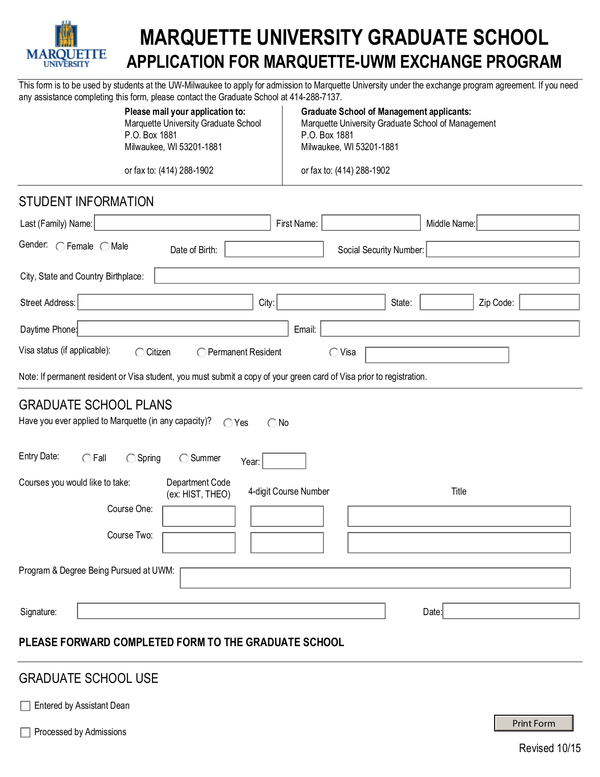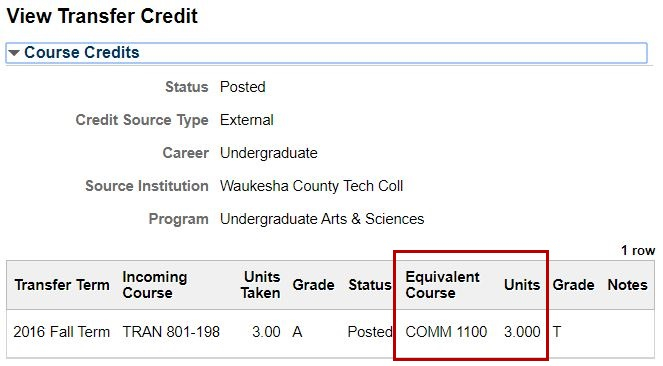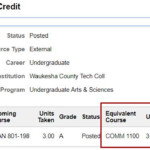Marquette University Transfer Credit Form – If you’re unclear on the process of transferring and want to know more, you can submit an Application for Transfer Credit Acquired form, or the TCAF. You might have a class you did not complete or did not earn a grade for, and you’re wondering if you can utilize it for your degree. It’s good news that you could. The majority of courses that get the grade of C or better do not need a material review. However, be aware that any coursework that isn’t able to transfer to a particular U-M course is considered to be departmental-credit. If it’s not departmental credit, you aren’t able to transfer it into a U.M. course and therefore you will not fulfill the degree requirements.
Coursework has to be graded equivalent to a grade of C or better
To transfer your course you must have an average of C or better. To be eligible for credits for transfer, they have to have been taken at an accredited institution including The Higher Learning Commission or the Middle States Association of Colleges and Schools (MASAC). International programs are assessed individually. Official transcripts should be submitted at the CCS. Your previous institution should also accept the course.
For credits to be transferred from your previous college, courses that you took at a foreign school should have earned a mark of C or higher. The grades of Pass/Satisfactory aren’t transferable, nor are college algebra, college developmental courses or career and technical courses. However this policy has been modified during the COVID-19 disease, and courses taken prior to the date of the change are now accepted.
For credit transfer, courses taught at institutions accredited by regional accreditation need to have earned a mark that is “C” or better in the previous institution. In order to transfer credits the courses must have the same scope and their content. A C grade is considered the acceptable minimum grade for transferable credits However, some institutions will accept marks of “D” or higher. Accreditation organizations include the Middle States Association of Colleges and Schools, the New England Association of Schools and Colleges The Northwest Association of Schools and Colleges and Southern Association of School and Colleges.
TCEL lists courses that have transferred to Clemson before. This isn’t a comprehensive listing and the courses not included here will need to be evaluated when you apply to Clemson. It is also worth noting that the TCEL listing also includes different course equivalents, but the list does not reveal differences in the amount of credits awarded between institutions. While the TCEL list courses that are equivalent to courses at other colleges It is important to note that the Office of Admissions’ evaluations are based on the latest information.
While your previous course work may be acceptable, however, it is crucial to consider its academic implications. If you’re in a position to not finish the course work, consider repeating it. It is important to get at least an “C” in the course and that you meet the requirements set by the university. When you are taking a class two or three times will affect your GPA cumulatively so you need to be aware of this when deciding to repeat it.





